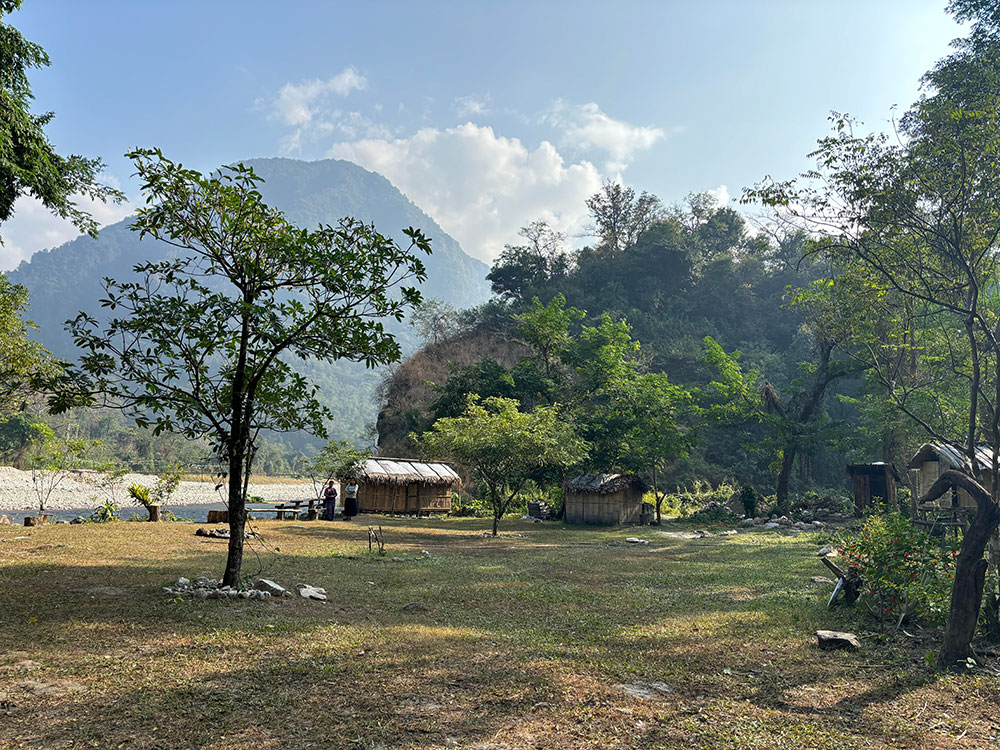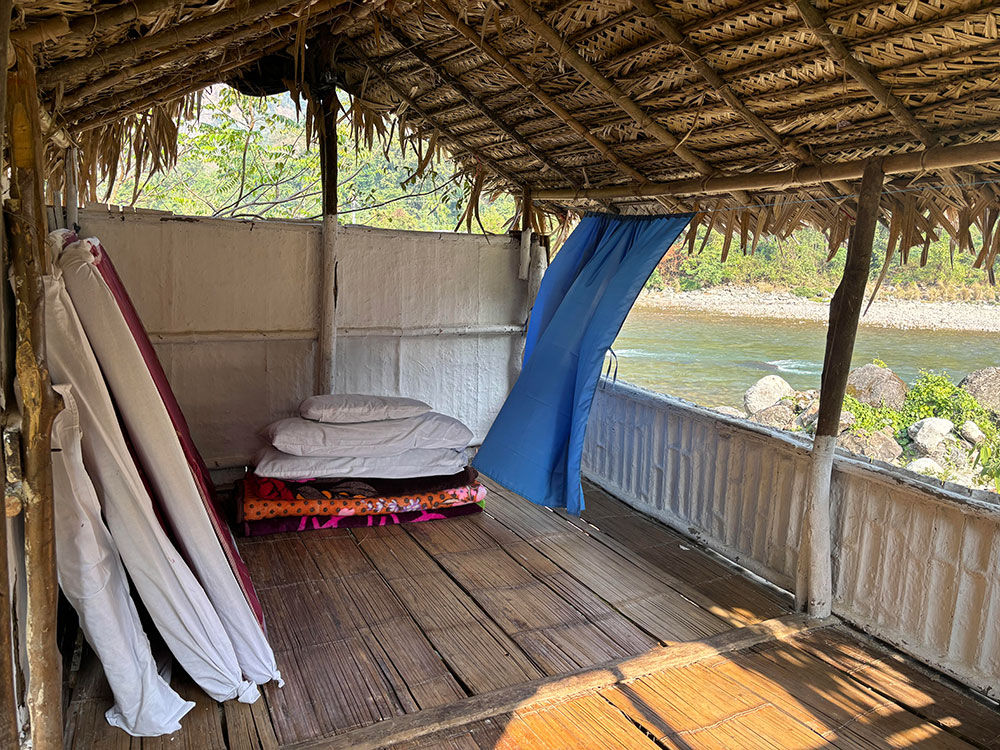Yangyel Lhaden
Chitra Kumar, a resident of Jigmechhu, found it absurd when the community geared up to start campsites in the village for ecotourism in 2021.
“I thought there was nothing in Jigmechhu,” Chitra Kumar said. “My first question was, who would want to come to my village.”
The local community members approached him to be a part of the community and start campsites. He refused. Over the years, Chitra Kumar saw people coming. They came again and again. “I was surprised,” Chitra Kumar said.
Last year, he approached the community members in charge of the campsites, but he was told he wouldn’t be eligible for a profit share from the beginning, and he had to pay a Nu 5,000 entry fee.

Tree house camp

Tree house camp
“I wanted to do something different,” Chitra Kumar said. He started his own community group with 10 members. Their plan was to build a treehouse using resources available in the forest. Their plan was supported by Chukha district. The members contributed a Nu 1,000 entry fee.
They gathered together, sourced bamboo from the forest, and constructed treehouses along the riverbanks last year.
When they started, they received support from various organisations. Helvetas provided them with culinary training, Bhutan BirdLife Society gave them a sound system, and the Royal Society for the Protection of Nature supported them with bedding. RSPN is also supporting them in constructing toilets.
The treehouse campsite is located in the north of the village, while the three campsites are situated in the south of the village. Cute bamboo houses fill the area with a serene view of the river. At night, there is a karaoke session, bonfire, and the group provide a delicious meal to the guests. Recently, they hosted 130 guests at their campsite from Gedu College of Business Studies.
“The business is thriving,” Chitra Kumar declared. “With Jigmechhu gaining recognition as an international tourist destination, there is optimism that the residents of Jigmechhu may choose to remain in the village and I started the tree house campsite with this motive.”
Jigmechhu experiences extreme weather conditions in the summer, characterised by scorching sun and continuous rainfall. During this season, nothing grows, power outages are frequent, and the roads become blocked.
“The very location of Jigmechhu is discouraging for people to settle, but now, with the advent of ecotourism, individuals can supplement their income. However, this is only feasible in the winter,” Chitra Kumar said. “People lose their land in the summer from swollen river, and there is a high likelihood that campsites along the river could be eroded away. Therefore, we earnestly request the relevant authorities to safeguard our campsites and land by constructing retaining walls.”
Leki Dorji, currently serving as the General Manager of the group, noted that visitors to Jigmechhu are primarily drawn for cultural tourism or recreational purposes. “There are a few individuals who come for birding and to explore nature,” he added.
“I aim to attract international tourists interested in nature, and Jigmechhu holds high potential due to its possession of two endangered species—the Golden Mahseer and the White-Bellied Heron,” Leki Dorji said. “However, I have limited knowledge about these species. I wish there were even a small booklet noting the species found in Jigmechhu.”
“I hope to see locals trained as nature guides so that we can leverage the rich biodiversity and transform it into a source of income,” Leki Dorji said.
The home ministry approved Jigmechhu ecotourism campsite as a formal international tourist destination on March 2, this year.

